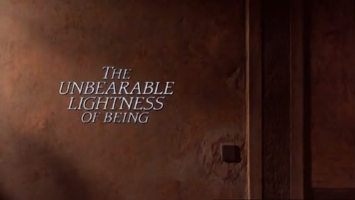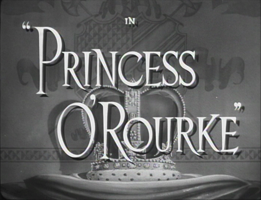
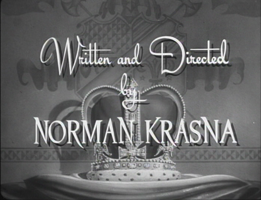
Winner in the category of WRITING (Original Screenplay) at the 16th Academy Awards, presented March 2, 1944 at Grauman’s Chinese Theatre.
The other nominees were:
In Which We Serve — Noël Coward
The North Star — Lillian Hellman
Air Force — Dudley Nichols
So Proudly We Hail! — Allan Scott
“PRINCESS O’ROURKE“
1.FULL SHOTNEW YORK SKYLINE (STOCK)DAY
Count to three and
DISSOLVE TO:
2.FULL SHOTDOWNTOWN NEW YORK (STOCK)
Mid-day traffic, noise.
DISSOLVE TO:
3.MED. FULL SHOTENTRANCEST. CHARLES HOTEL
This is the Private Entrance to the Tower Apartments, on the street level, and not much bigger than the entrance to a town house. A trim delivery truck pulls up to the curb, a boy jumping out even before the car comes to a stop. He has a hat box in his hand. He enters the hotel.
4.MED. TRUCK SHOTINT. ST. CHARLES LOBBYPRIVATE APARTMENTS SECTION
This is only the size of a large sitting room. There is one elevator, its attendant waiting at the open door. A big young man, wearing a felt hat, is seated in one of the chairs reading a newspaper. Our delivery boy crosses to the elevator.
DELIVERY BOY:
Miss Williams’ apartment.
He steps into the elevator. The elevator boy looks in the direction of the big young man with the felt hat.
ELEVATOR BOY:
(repeating a little too loudly)
Miss Williams?
DELIVERY BOY’S VOICE:
Yep.
5.MED. CLOSE SHOTBIG YOUNG MAN WITH FELT HAT
He looks toward the elevator and gets up, crossing to it, and entering.
[First lines in finished film are exactly as above.]
[For today’s discussion, our panel was privileged to be joined by esteemed colleague “Phil” via live satellite feed. Our correspondent had watched the film earlier the same day.]
BROOM Phil, you weren’t here to experience the group dynamic, but the consensus was, after only a few minutes, that this was a very awkward dud. Did you feel that way?
PHIL I did.
BROOM Okay. We were surprised.
PHIL It was a five-minute movie stretched into ninety minutes.
BROOM That’s even a little more elegant than what I thought, which was that it was just very confused. It tried to press a lot of different buttons that didn’t have anything to do with each other.
ADAM There were a lot of details that got shoehorned in. I sort of understood where the whole plot was going, but nobody seemed very committed to it. There were all these extraneous details that caught my attention instead of anything related to the plot. Like Fala. Why was Fala in it so much?
BETH Because he was cute.
BROOM I think that was part of the spirit of pandering that ran through the whole thing. It was for the audience to go “It’s the president’s dog! Oh ho ho it’s so funny that he’s in a movie!” And that’s it. I don’t think there was more sense to it than that.
ADAM Well, what was with the sleeping pills?
BROOM Yes, Phil, any thoughts about the roofie plotline? That the whole thing was based on her being given too many sleeping pills and him being so gentlemanly as not to rape her?
PHIL That was so ridiculous. I felt that it didn’t know what it wanted to be. Was it a true love story or was it a comedy?
BROOM I thought it was clearly trying to be a comedy; it just didn’t have any actual jokes up its sleeve.
ADAM Part of the problem is that Olivia de Havilland is probably the least funny actress.
PHIL I agree, absolutely! She’s not funny!
BROOM She was terrible.
ADAM So all the jokes just sort of hung there.
BROOM In the very first scene, when she says “cheep cheep” to show that she identifies with the bird, it just felt embarrassing.
PHIL I agree with that too.
BROOM I thought, “She shouldn’t have been made to do this! Because she clearly doesn’t know how to deliver a line like that!” Or do anything else. She just kind of looked around. She didn’t even look angelically pretty, either. She just kind of was present, looking around, for the whole movie.
PHIL But here’s something very good: she’s still living.
BROOM That’s right. Here’s to her.
PHIL I mean congratulations. I was trying to figure it out: 1943, so that’s 57 plus 14 is 71 years since she made that.
BROOM And she must have been in her 20s.
BETH Yeah, I think she’s 95 or 96. [ed.: 98.]
PHIL Wow.
BROOM Her life I’m all for.
PHIL Was the woman who played the other guy’s wife Donna Reed?
BROOM Jane Wyman.
ADAM That was Mrs. Ronald Reagan. She didn’t live in the White House.
BROOM That’s right, she didn’t make it all the way to the White House. Her character didn’t either. So that last section was the most thematically fleshed-out, to my mind. He’s just a schlub named O’Rourke that she’s going to marry — he’s not actually a schlub, but he’s “just an American,” “a normal guy,” “he’s no royalty!” — and then he has to leave his life behind to marry her, and that’s the conflict. And at the end they sort of resolve it in his favor. But before that, he has to say goodbye to his friends and they leave forlorn, and we don’t see them again. And whatever the political message of that conflict was supposed to be, the stuff like “hold it right there, I’ll never renounce my American citizenship” — the patriotism of it was so half-assed.
PHIL What about the motivations of Charles Coburn, the uncle? At one point he’s being really nice to her and saying, “You know, you should really marry a commoner,” and then the next thing, he’s treating her like…
BETH A child.
BROOM It was just one cliche after another, and the cliches weren’t executed properly so they were really confusing. They didn’t all fit together. The lines themselves were all clunky.
BETH And so repetitive!
BROOM Yes, they’d say the same thing twenty times. “I’ll never forget that you proposed to me, for the rest of my life.”
PHIL So as my friend said tonight when I told them that it won best screenplay — and this is true, BROOM?
BROOM Yes! Unless Wikipedia has led us astray, which could happen.
PHIL So my friend said, “can you imagine what the others were like?”
BROOM I know! We should look them up. So I had a thought about this: The Academy Awards, as we know from the present day, are not the most reliable arbiter of quality. In part that’s because people just don’t know quality, but in part because it’s kind of an insider award given by people who have an interest in the industry. And I thought, this represents a kind of middle-of-the-road 1943 hogwash that might have felt like “a job well done” to a lot of industry folks at the time.
ADAM I mean, is this worse than Forrest Gump?
BROOM Tell me why you’re using that as a comparison.
ADAM Because it’s kind of a patriotic pastiche cliche…
BROOM It’s absolutely worse than Forrest Gump.
ADAM It is?
BROOM I mean, Forrest Gump made sense as Forrest Gump!
PHIL Whoa! I can’t even believe that Forrest Gump has been reduced to that level.
BROOM You liked it?
PHIL No, I wouldn’t say that, but I certainly thought it had more of a story!
BROOM Yeah!
ADAM But this movie was just, sort of, badly acted…
BROOM No, it was worse than that.
BETH It was a mess. It was all over the place.
BROOM This pandered at so many levels. That scene where we got to hear from Mrs. Pulaski about how she raised nine kids.
PHIL Oh yeah, that was great.
BROOM It was like they wanted to be a propaganda poster, but they couldn’t figure out what the thoughts behind the propaganda were supposed to be, so they just summoned up some patriotic reflexive gestures. They had the stern woman saying “That’s the spirit. Do what you can!” And then Olivia de Havilland gets comically wrapped up with splints while the guys are playing handball. That whole section was so schizophrenic and meaningless.
BETH That was my favorite part.
PHIL And then the car gets parked on the court.
BROOM He’s watching her from the door in his sweatpants, and then she gets laid out on the table and a woman with her tongue sticking out binds her arms.
PHIL That was a riot!
ADAM And then the guys are in the steam room and when the lights come on they’re among all the ladies. Get it?
BROOM The two leads are not interacting or even in the same place during any of that, and then two scenes later he’s going to propose.
BETH That was when they were falling in love!
BROOM That was the date sequence: he plays handball with his friend. So Phil, you said to pay attention to the music, and I forgot to pass that on to these two, but we all ended up commenting on it anyway. I thought the composer must have been thinking “People aren’t going to get that this is a comedy unless I write some really comic music!”
PHIL I thought he thought “My god this is horrible; I better pump this up!”
BROOM Exactly.
ADAM Well, we’re gonna rescore it.
BROOM Yeah, Adam was saying that it was done in part because those scenes, had they not had that pantomime music, would have seemed ominous. There was just a noir “nothing is right” feeling; the pacing is all wrong; everyone’s saying things like they don’t mean them. So Adam said we should put spooky music under it and it would be really creepy. Also, in that sequence where she wakes up and sees signs that say “I saw you naked,” a wacky comedy trumpet plays a note for every syllable on the sign! I’ve never seen that done before! That was crazy.
PHIL That’s why I wrote you and said “This won best screenplay?”
BROOM It was shocking. So far we’ve watched The Great McGinty, by Preston Sturges, which was weird in some of the ways this was weird, but it was smart the whole way through; it felt like a New Yorker cartoon.
PHIL And what year was that?
BROOM 1940. And then 1941 was Citizen Kane, which is a wonderful screenplay as we all know. Then 1942 was Woman of the Year, which is Spencer Tracy and Katharine Hepburn in a totally passable by-the-book screwball marriage comedy.
PHIL And that was Garson Kanin who wrote that?
BROOM Exactly, yes. [ed. Actually credited to his brother Michael Kanin. And Ring Lardner, Jr.]
PHIL Okay. So… why do you think this was so bad?
ADAM It was inexpertly composed.
BROOM I don’t know who Norman Krasna was, but he’s why.
PHIL Do you think it won because it was political?
BETH Yes.
ADAM Do you think all that political stuff got shoehorned in by executives?
BETH I think people thought the fact that it was comedic and political made it “smart.”
BROOM Yeah, that might be the explanation. Because it was about “the war,” in a very oblique comic way, standards for intelligence are just much lower. You know, if you watch some Conan O’Brien monologue about current events from 1996, the jokes might not seem that sharp anymore, but at the time, because it was topical, it felt clever.
PHIL You don’t know what won Best Picture that year, do you?
BETH We can easily find out.
BROOM I believe this movie had greater significance in some way because it led to the “de Havilland law.” Let me find this.
ADAM Were we talking about this recently? Someone elsewhere mentioned the de Havilland law.
BROOM [reads:] “… its importance in changing the status of contract players…” “… tensions came to a head as de Havilland fought openly with Warner Bros. Tired and suffering from low blood pressure…”
BETH She looked tired!
BROOM She looked awful. She had bags under her eyes when they were talking about how beautiful she was. She looked like she could barely stand to be there.
PHIL I didn’t actually notice that, no. But tell me again, what’s the de Havilland law?
BROOM “… She filed a lawsuit against the studio that set a limit on studio-player contracts.” She felt that her long-term contract led to abuse in this case.
ADAM The best picture of 1943 was Casablanca.
PHIL Oh my god!
BROOM The screenplay of which is 100 times better than this.
PHIL Absolutely!
ADAM Casablanca won for Best Adapted Screenplay.
BROOM Oh, right. So this was Best Original. We chose this category for…
BETH … its originality.
ADAM The other candidates were Noël Coward for In Which We Serve….
BROOM Noël Coward would surely have written better dialogue than this.
ADAM … Lillian Hellman for The North Star, Dudley Nichols for Air Force, and Allan Scott for So Proudly We Hail!
BROOM A year of patriotism.
BETH The fact that this was comedic probably made the difference. But who knows.
BROOM Well, wartime was probably a strange time for aesthetics. Because everyone feels that pressure to be a part of the “effort.” I wish I had a better word than “pandering,” but that’s the word I keep thinking of. I didn’t have a sense of how much of a war-effort movie it was until suddenly, thunk!, we’re at that table where the Red Cross lady is asking “what can you do for the war effort?” The princess isn’t even an American! Why would she even get in that line?
ADAM What do you mean? Her country was overrun by the Nazis.
BETH To prove something to him because she was on a date!
ADAM No! Her family’s refugeed in London because the Nazis have overrun the continent.
BROOM Did they name her country at any point?
ADAM No. She’s obviously central European.
BROOM They never even tried to speak with an accent, or suggest anything about their home country. It was so quarter-baked. Anyway, Phil, we were a little embarrassed that we invited you to join our film club and this is what you ended up seeing. The other three movies were good!
PHIL Yeah, I got very worried this afternoon.
BROOM I feel that.
PHIL I said, “if this is the tenor of the movies we’re going to see…” Now, it was good that it was only 90 minutes.
BROOM Agreed. Maybe that’s why it won.
PHIL That could be. But clearly, I could have written that screenplay.
BETH You would have done better than that.
PHIL Yeah, well, I could have at least written it. So I might as well have an Academy Award, here.
ADAM Coming up is “Lamar Trotti’s Wilson.”
BROOM Yeah, that’s the other thing…
ADAM “A 1944 American biographical film in Technicolor about President Woodrow Wilson.”
BROOM Right: should you choose to accept it, unfortunately, the next thing we’re going to watch is Darryl Zanuck’s pet project about the life of Woodrow Wilson.
PHIL And when is the next session?
BROOM The next session is whenever I can get these two to be enthusiastic enough to go through with it, which generally follows inversely on the quality of the previous movie. It’s going to be harder to get them to show up now that we’ve just seen this one.
BETH In all likelihood: three weeks.
PHIL That’s plenty of time. But I don’t even think this tonight qualified as a B movie.
BETH No.
BROOM It wasn’t a B movie, it was an A movie. Do you mean in production quality? It had high production values.
PHIL Just as a general kind of “we’ll take the stars that we’ve got and put them into a vehicle”… I mean, even Woman of the Year, as a B movie, is much much better.
BROOM You mean “B” just as the level of quality you expect from it?
PHIL Yeah.
BROOM Sure, Woman of the Year was completely watchable. We all chuckled for real. I don’t think I chuckled once, as me, while watching this one.
BETH I laughed at it.
BROOM I think I did laugh once, at the end, when he’s feeling very nervous and trying to be on good behavior, and tells his friends he’ll see them to the door, and then turns back and says “I’m just going to the door!” That seemed like a moment with actual comic value to it. But generally I got the sense that Norman Krasna must have been some kind of a clod. I’m looking him up.
ADAM We dance on your grave, Norman Krasna.
BROOM This was his directorial debut. Not shocked.
ADAM If you’d had a better director and better actors, it wouldn’t have seemed so clunky. And Olivia de Havilland’s a good actress, she was good as Melanie Wilkes.
BROOM She’s not a clown! She’s not Lucille Ball!
ADAM So who would you have cast as a “funny princess”?
BETH I don’t know, Ginger Rogers?
BROOM Just the other day we watched The Lady Eve with Barbara Stanwyck doing not quite the same thing, but in the same ballpark.
BETH She’s not right. She gives such a darkness to everything she does.
PHIL Ooh, she scares me.
BROOM The Lady Eve was sort of the inversion of this movie.
ADAM How about Ellen Page?
BROOM I don’t think she was available.
PHIL That’s good. She would have turned that shit down, though.
BETH Too condescending.
BROOM Saving graces of this movie? I can’t think of anything.
BETH No, this movie sucked. It was really bad all around.
PHIL I thought the opening visual of the Warner Bros. logo was pretty cool.
BROOM It was. Clean.
PHIL And dramatic! It had some kind of great music, and it was a 3D black-and-white logo… I thought that was the best part of the movie.
BROOM Warner Bros. had that down.
ADAM How many people do you think have seen Princess O’Rourke in the last 12 months?
PHIL Six.
ADAM Probably, right?
BETH Not very many.
BROOM I’m actually curious, Phil: you said yesterday “how do I see this?” and I thought, “right, he’s not going to be able to get this within a day, because it’s Princess O’Rourke.” How did you get a copy within 10 hours?
PHIL I called upon some favors. I called some friends and said “get it over to me this afternoon.” I actually got it last night. Now I’m hoping Wilson will be easier to get. As we move forward in time it’ll be easier for me to get them, I think.
BROOM Yes. Except the one right after Wilson, the hardest one on the list, which is a Swiss film called Marie-Louise, which I believe has never been released in the modern era and has to be bought from bootleggers if we want to see it.
PHIL And do you rank or give a grade to the screenplays as you see them?
BETH We haven’t been.
PHIL What was the 1940 one?
BROOM The Great McGinty, Preston Sturges.
PHIL And what would you give that as a grade?
BROOM A letter grade, or out of ten, or comparative to the others?
PHIL Out of ten.
ADAM Satisfactory.
BROOM I’d give it a 6+ or 7.
BETH I’d say 6.
PHIL My big thing as I was watching this today was thinking, “Wow, boy has screenwriting gotten better!”
BROOM Well, Citizen Kane…
PHIL That’s right! Then you stopped me.
BROOM And I mean, Gone With the Wind. Any great movies. There have always been great movies.
PHIL So, okay, 1940 was Preston Sturges. Then 1941?
BROOM Citizen Kane, which I would give a 10. That’s as sophisticated as a screenplay gets.
PHIL All right. 1942?
ADAM Woman of the Year.
BETH 7.
BROOM Yeah, I would put it almost as low as The Great McGinty. It had some problems. It had greater charm when it had charm, but it was uneasy because the crux of it was sort of sexist stuff. I would give it a 6 or 7 also.
PHIL And tonight’s?
BROOM I don’t know, a 2?
BETH 2.
PHIL Okay, good.
ADAM It wasn’t overtly offensive, and there were some visual jokes that made me smile.
PHIL Well, I feel redeemed. I was so worried that you all would say “Stunning!”
BROOM That we would put on our Critic voices and say, “But Phil, you’re not giving it proper historical perspective.”
PHIL Yes. “You’ve missed the subtextual ennui!”
BROOM I got a lot of subtextual ennui out of this. I tried to cover it by heckling the whole time.
PHIL I bet. Okay kids.
BROOM Thanks for joining; it was a pleasure to have you.
PHIL Okay, good night.
[he vanishes]
[we read the New York Times review]
ADAM Bosley Crowther was totally taken in by all the patriotic bullshit.
BROOM And Variety agreed. “Credit for general sparkle and excellence of the picture must be tossed to Norman Krasna.”
BETH Did he just have friends?
ADAM War does funny things to people!
BETH That’s got to be it.
[we then read the paragraph in Wikipedia that quotes the government’s displeasure with the film for “…recklessly using the war for background incidents in an opportunistic attempt to capitalize on the war rather than interpret it.”]
BETH So that’s it; it’s that it was not the typical wartime picture, and that made an impression on the Academy.
BROOM It certainly was “irreverent,” if reverence is a synonym for maturity. It didn’t have that. So audiences must have thought, “Oh cool, they managed to put the war in a dumb movie!”
[we read summaries of the other nominees]
BROOM So wait a minute. We’ve forgotten how this worked. In those years there was Original Screenplay, and there was also Original Motion Picture Story. There were three writing categories. So Princess O’Rourke won for Screenplay, but The Human Comedy by William Saroyan won for Story.
BETH That’s probably a better movie.
BROOM Up against Shadow of a Doubt, The More The Merrier, Destination Tokyo. This is clearly a better list. But we’re not watching another one from this year. This was it. I think it’s appropriate for us to have to stick with the one category. But what a shame.
ADAM That category was last presented in 1956.
BROOM Well, that’s that. Princess O’Rourke was a dud.
BETH D-U-D dud.
ADAM I don’t know; that’s just the way we lived then. It’s like Operation Dumbo Drop.
BETH It was no Chicken Little.
BROOM That’s right, it was better than Chicken Little.
ADAM It was. It was better than probably half a dozen of the bad ones.
BROOM But I felt it was bad kind of for the same reason, which is to say: too obsessed with its moment, and not with actual values of entertainment.
BETH I think it comes from nervousness on the part of someone who had never made a movie before.
Last lines in film:
— The president? Holy mackerel, I tipped him a buck! And he took it!
(— Come, dear.)
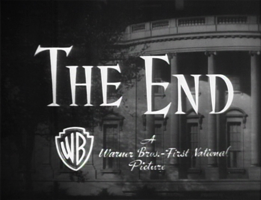
This is the first Academy Awards for which the complete radio broadcast is available. Pretty engrossing stuff! (The first half is red carpet pre-show; the ceremony broadcast starts at 28:50). It turns out that Darryl Zanuck sounded exactly like Marvin the Martian; who knew.
However the broadcast only includes the last five awards (Best Picture + the 4 acting awards). Audio of the rest of the evening apparently exists in the Academy archives, because they make a couple of clips available on their site, including the presentation of the writing awards!… But unfortunately they’ve omitted Norman Krasna’s acceptance speech. However one can hear some hollers of delight in the crowd when Princess O’Rourke‘s win is announced. My impression of the response is that this is seen (by its supporters) as the surprise victory of the scrappy underdog, whereas The Human Comedy just gets sort of a tepid appreciative applause and Casablanca gets unanimous and unsurprised applause. Maybe I’m reading too much into those hoots. Listen for yourself.
This quickie newsreel is all the film I can find.
Look, here’s an image of Norman receiving his Oscar in uniform.
(This comes to us, of all places, from the United States Holocaust Museum, where it is given to illustrate Krasna’s pride in his Air Force service, as context for their presentation of Krasna’s incredibly disturbing color footage of Holocaust atrocities, shot during the liberation of Buchenwald and Dachau, with his narration. Not to be watched lightly. Not to be watched in connection with this entry at all, I daresay. Sorry to end on this note, but that’s the internet for ya!)
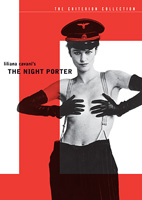
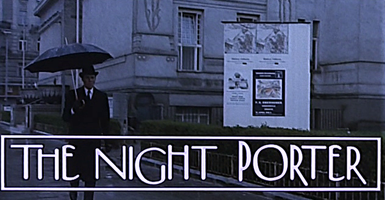
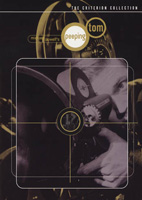 (out of print since 4/10)
(out of print since 4/10)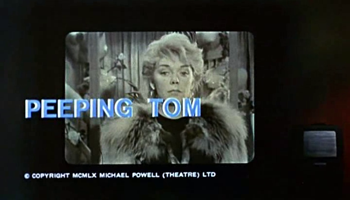
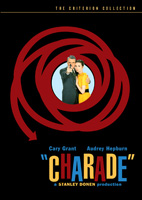 2010 Blu-ray:
2010 Blu-ray: 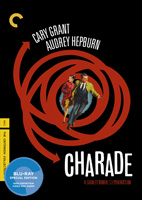

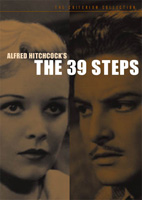 2012:
2012: 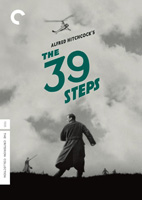
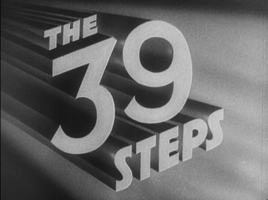



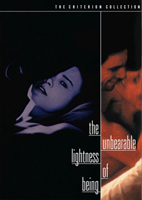 (out of print by 6/01)
(out of print by 6/01)